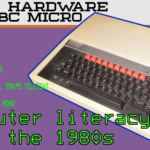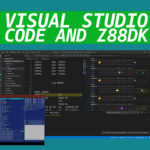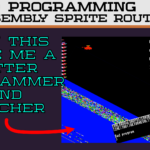Picture the modern world, but without Windows, PCs or Apple. What would be on your desk?
Would it be an ARM based RISC computer, running an operating system that originated in the late 80s that still has BASIC in it as standard? Maybe. If you’ve ventured outside of the Linux based operating systems for the Pi you might have noticed RiscOS and wondered what it is.
RiscOS was developed in 1987 by Acorn, creators of the BBC Micro, for their new Archimedes computers that used their then-new ARM CPUs. Over the years the OS was forked and is now owned and maintained by RISCOS LTD and the RiscOS Open community. And since the Pi has an ARM CPU the OS was ported to it.
The interesting part, beyond its unconventional user interface is the choice to leave BBC BASIC inside it. This isn’t an emulator for backwards compatibility, nor is it a separate application you need to run.
Hiding inside RiscOS is a full commandline interface that you access by pressing F12. It just appears on the screen. From there you type BASIC and that’s it, you’re in BASIC. To get out, just type *QUIT and that’s it. No rebooting or anything required. Imagine if accessing the Windows command line was as easy as pressing a key and it just appearing.
If you play around with BBC BASIC for any length of time you start to notice it’s a bit more capable than other dialects of BASIC from the 80s. For a start it supports inline assembly. You can literally type assembly instructions into your BASIC listing and it will get assembled and run.
On the original BBC Micro this was 6502 or Z80. On a Pi it’s modern ARM instructions.
RiscOS itself is also quite unique, it’s a single user system. There’s no requirement to log in, no file security, no superuser account. Just you and the computer. There’s even an app store with applications in – some of which are full price pieces of software. It’s not just another Linux derivative with 10,000 GNU tools, Gimp, Inkscape and Libreoffice.
I don’t think I’ll ever use it as anything beyond a modern way to play with BBC BASIC, but it’s nice these alternate universes exist and the Intel/Microsoft/Linux world hasn’t totally destroyed all competition, no matter how small.




